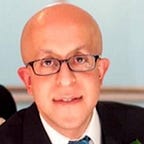BREAKING: National Security Advisers Have Views of Their Own
I am more than a bit confused by the claim that because Brent Scowcroft had opinions — strong opinions, even! — it meant that he didn’t “follow ‘the Scowcroft model.’” My confusion stems in significant part from the fact that I know of no one at all who claims (with a straight face, anyway) that the national security adviser to the president needs to be some kind of tabula rasa with no views of his or her own.
The national security adviser needs to be able to collect the assessments and opinions of all of the major players in the national security/foreign policy/defense/intelligence community, and present those assessments and opinions to the president-including making sure that those players are able to make their respective cases in person to the president. To the extent that the national security adviser does this fairly and accurately, s/he can be said to have followed the Scowcroft model. But part and parcel of the duties of any national security adviser is serving as a private counselor to the president, and giving the president the national security adviser’s best advice. In doing so, of course, the national security adviser must, of course, continue to describe and reflect the views of other national security policy/foreign policy/defense policy/intelligence community players accurately. But at the same time, the national security adviser is obliged to tell the president what the national security adviser thinks as well, and in doing so, the national security adviser needs to be prepared to tell the president truths the president may not want to hear, including truths that other national security policy/foreign policy/defense policy/intelligence community players were not able or willing to tell to the president.
So no one should be in the least bit surprised to hear that Brent Scowcroft had views and opinions, and that he was not shy about expressing those opinions. To the extent that James Mann’s article pointed out any genuine departure from the Scowcroft model by Scowcroft, that departure can be found in Scowcroft’s anger at Winston Lord regarding Lord’s efforts to highlight human rights issues by (gasp!) inviting a Chinese dissident to a presidential dinner, and any subsequent efforts on Scowcroft’s part to ensure that Lord never got another job in the administration. Not permitting a president to hear the views of a genuine and thoughtful China hand regarding China policy and Sino-American relations constituted a failure on the part of the national security adviser in terms of presenting the president with a full panoply of views and opinions.
But actually having opinions and being able to voice those opinions to the president? Yeah, the national security adviser is both allowed and expected to do that-under the Scowcroft model, and under just about any other model as well.
Originally published at http://pejmanyousefzadeh.net on August 8, 2020.
